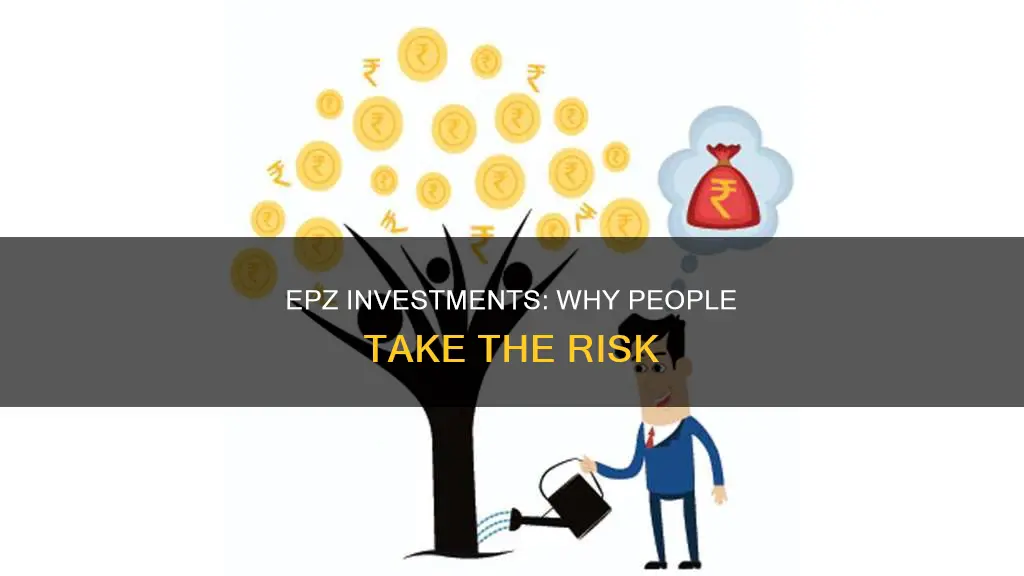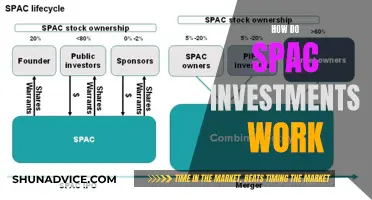
Export Processing Zones (EPZs) are industrial areas where governments create favourable policies and conditions to attract foreign investment and trade. EPZs are set up to enhance commercial and industrial exports by encouraging economic growth through foreign investment. They are characterised by tax exemptions, duty-free imports and exports, and flexible labour laws. While EPZs have been criticised for poor working conditions and low wages, they have also created millions of jobs, particularly for women in developing countries, and boosted economic growth in host countries.
| Characteristics | Values |
|---|---|
| Tax exemptions | Attract foreign investment |
| Barrier-free trade environment | Attract foreign investment |
| Foreign exchange earnings through nontraditional exports | Economic growth |
| Job creation | Income generation |
| Job creation | Develop labor skill sets |
| Direct foreign investment | |
| Transfer of technology | |
| Industrial areas with specialized policies | Attract businesses |
| Industrial areas with desirable manufacturing conditions | Attract businesses |
| Duty-free materials | Manage costs |
What You'll Learn

Tax exemptions and barrier-free trade
Export Processing Zones (EPZs) are industrial areas where governments create specialized policies and favourable conditions to attract businesses and foreign investment. They are designed to encourage economic growth through investment from foreign entities.
One of the main attractions of EPZs is the tax exemptions they offer. Companies based in an EPZ benefit from long-term tax concessions, and imports of materials and goods for export are duty-free, helping to manage costs. These tax incentives are a key part of the favourable trading conditions that EPZs offer, alongside regulatory benefits such as more flexible labour laws.
EPZs are often located near ports of air and sea, making the import and export process more convenient for businesses. They can be managed either publicly or privately, and they can accommodate both domestic and foreign firms, even offering the opportunity for joint venture operations.
EPZs have evolved to include resorts, designated finance zones, technological parks, and logistics centres. They are a key part of the global economy, providing services, technology, exports, and jobs internationally.
Wealth Management: Helping Clients Build Investment Portfolios
You may want to see also

Foreign exchange earnings through non-traditional exports
EPZs offer incentives such as tax exemptions and a barrier-free trade environment to attract foreign investment and trade. They can enable the production of new non-traditional exports and generate jobs, which in turn assists in income generation and the development of labor skill sets.
The creation of EPZs can lead to uneven development, with resources concentrated in specific regions, causing the neglect of other areas. Additionally, there are concerns about the impact of EPZs on local industries and workers' rights. Some of the negative consequences of using exports to earn foreign exchange include environmental degradation, regional development gaps, and the loss of real domestic wealth.
However, EPZs have evolved to include designated finance zones, technological parks, and centers dedicated to logistics, showcasing their adaptability and potential for further growth.
Century-Old Investment Strategies
You may want to see also

Job creation and income generation
Export Processing Zones (EPZs) are industrial areas where governments create specialized policies and desirable investment and manufacturing conditions to attract businesses. They are designed to encourage economic growth through foreign investment.
EPZs offer incentives such as tax exemptions and a barrier-free trade environment to attract foreign entities. They aim to generate jobs, assist in income generation, and develop labor skill sets. These zones can be managed either publicly or privately.
EPZs have been successful in creating jobs, particularly for women in developing countries. For example, in Costa Rica, EPZs have created almost 49,000 jobs, mainly in the garment and electronics sectors, contributing to a diversification of the country's exports and a decrease in unemployment levels.
However, EPZs have also been criticized for their reputation for low wages, poor working conditions, and underdeveloped labor-relations systems. The combination of direct manufacturing investment, employment, and technology transfer can provide benefits, but there is often a lack of meaningful linkages between EPZs and the domestic economies of host countries.
To address these issues, it is important to improve wages and working conditions, increase productivity, and foster linkages between EPZs and domestic economies. Additionally, investments in social infrastructure, particularly for women workers, such as childcare facilities, safe transportation, and sanitary living and working conditions, can make EPZ employment more stable and attractive.
Millionaires' Investment Strategies
You may want to see also

Direct foreign investment
EPZs are industrial areas where governments create specialized policies and desirable investment and manufacturing conditions to attract businesses. They are often located near ports of air and sea, making the import and export process more convenient for businesses. EPZs can be managed publicly or privately, and they offer benefits such as advanced communication facilities, enhanced infrastructure, and subsidies for utilities and rent.
The number of EPZs has grown significantly over the years, with over 850 zones worldwide as of a few years ago. Countries in Asia, Latin America, Central America, and Africa have the largest number of EPZs, with China having the most. EPZs have contributed to the growth of the "Asian Tiger" economies and the technological and financial development of Singapore.
While EPZs offer many benefits, there are also some disadvantages, particularly regarding labour conditions and wages. Many EPZs are associated with low wages, poor working conditions, and a lack of labour-relations systems. The labour-intensive nature of the work and the abundance of available labour contribute to keeping wages low. Additionally, labour laws are often neglected or disregarded, negatively impacting the work environment.
Overall, EPZs play a significant role in attracting direct foreign investment, fostering economic growth, and providing employment opportunities, but improvements are needed to ensure better working conditions and wages for employees.
Retirement and Investment Trends
You may want to see also

Technology transfer
EPZs offer incentives such as tax exemptions, duty-free imports and exports, and a barrier-free trade environment. These incentives are designed to attract foreign direct investment (FDI) and boost the host country's economy. The technology transfer aspect of EPZs is intended to foster industrial development in non-traditional goods and efficiency gains in the production processes of traditional goods. This transfer of technology and knowledge spill-over is expected to have a positive impact beyond the EPZ, creating backward linkages with local firms that can supply the EPZ firms and eventually compete in the international market.
The combination of direct manufacturing investment, employment, and technology transfer can provide an important boost to the host country's development. However, there is a lack of meaningful linkages between EPZs and the domestic economies of most host countries. Only a few countries, such as Malaysia, Mauritius, and Singapore, have successfully developed a wide range of domestic export industries based on EPZ investment.
The success of technology transfer in EPZs depends on several factors, including the availability of a skilled workforce, the type of industries attracted to the zones, and the effectiveness of government policies in ensuring the transfer of technology and skills to local industries and workers. While EPZs have the potential to drive industrial development and economic growth, addressing labour and human resource issues is crucial for their long-term success.
Madoff Victims: Lives Destroyed
You may want to see also
Frequently asked questions
The main goals and benefits of investing in EPZs are to generate foreign exchange earnings through non-traditional exports, create jobs to assist in income generation and develop labor skill sets, attract foreign direct investment, and foster the transfer of technology.
EPZs are usually located near ports of air and sea, making the import and export process more convenient. They offer tax concessions and duty-free imports of materials and goods for export. EPZs can be managed either publicly or privately and provide advanced communication facilities and infrastructure.
One of the main disadvantages of EPZs is the poor working conditions and violation of labor laws, including excessive working hours, low wages, and lack of labor unions. This has led to protests and campaigns by human rights organizations and workers.
EPZs attract foreign direct investment and boost exports, which leads to an increase in foreign exchange earnings. They also create employment opportunities and induce the transfer of technology.
According to a 2019 report, countries in Asia, such as China and India, Latin America, and Africa have the largest number of EPZs. China has established the most EPZs globally.







